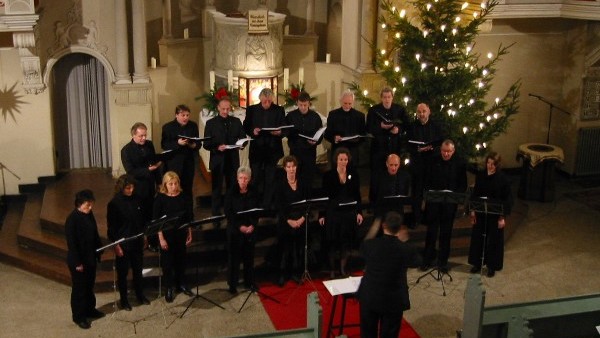5 ways singing early music makes you better at working in tech
Yet another inane comparison you don’t need and don’t care about 2022-11-29 #satire #product

Now that we find ourselves in the last days of the Twittapocalypse, amid growth hack thread templates and the last gasps of tech industry thought leadership, I want to make my own contribution, with yet another tenuous link between a niche hobby and working in tech. As an amateur early music singer with a product management job, I can’t resist sharing the bogus connections between the two.
1. Breathing technique
Good vocal technique, like yoga, relies on good breathing technique. This allows a singer to practice for hours, without straining their throat or suffering fatigue.
In tech, good breathing technique has helped me survive long meetings, where managers and consultants compete to fill the room. Diaphragmatic breathing gives me the vocal power to dominate conversations, with fewer pauses to breathe that leave openings for other meeting participants.
2. Artistic interpretation
Early music singers don’t focus rigidly on the exact written music. Old manuscripts, such as the Eton Choirbook lack context, so you learn to use your understanding of the genre and your own creativity to fill in the gaps.
An awareness of musicology has helped me approach customer requirements less literally. For example, when working with product owners who had less availability than a long-dead renaissance composer. Instead of expecting them to explain quarterly objectives and user stories, early music has inspired me to make things up, in the name of artistic interpretation.
3. Confident performance
Regular choral concerts trained me to remain calm and overcome nervousness, in high-stakes situations. Concert performance teaches the value of effective rehearsal and a smart suit.
Working in tech also requires confident performance, especially when engaging in success theatre. By applying what I’ve learned from literally putting on a show to business presentations, I make even the most obscure content sound reasonable. Business strategy especially resembles early music, for example, in that the audience has no idea what it should sound like. Instead, they ask do you think it went well? In both cases, confident performance (and excellent timing) guarantees success.
4. Emotional control
Sixteenth century Catholic composers crafted beautiful music to evoke strong emotions, as in Palestrina’s Missa Papae Marcelli (recording). As a singer, I’ve learned to avoid feeling overcome by emotion during a performance by focusing on my breathing technique, and paying attention to the conductor.
Similarly, workers in tech also experience strong emotions, such as anger, despair, and fear. To avoid feeling overcome, singing taught me to focus on quarterly objectives and concentrate on what the product manager says. (Managers should focus on themselves, as usual.)
5. Other people’s money
Choral music doesn’t make money, except for elite professional groups. Amateur early music relies on patronage, subsidies, and performers whose career in tech pays for their hobby.
In tech, the most profitable service delivery work doesn’t offer the most interesting work. Early music funding taught me that my professional art requires venture capital funding to support a company building a cool product. It turns out that start-ups need the same thing as the renaissance composers: other people’s money.

